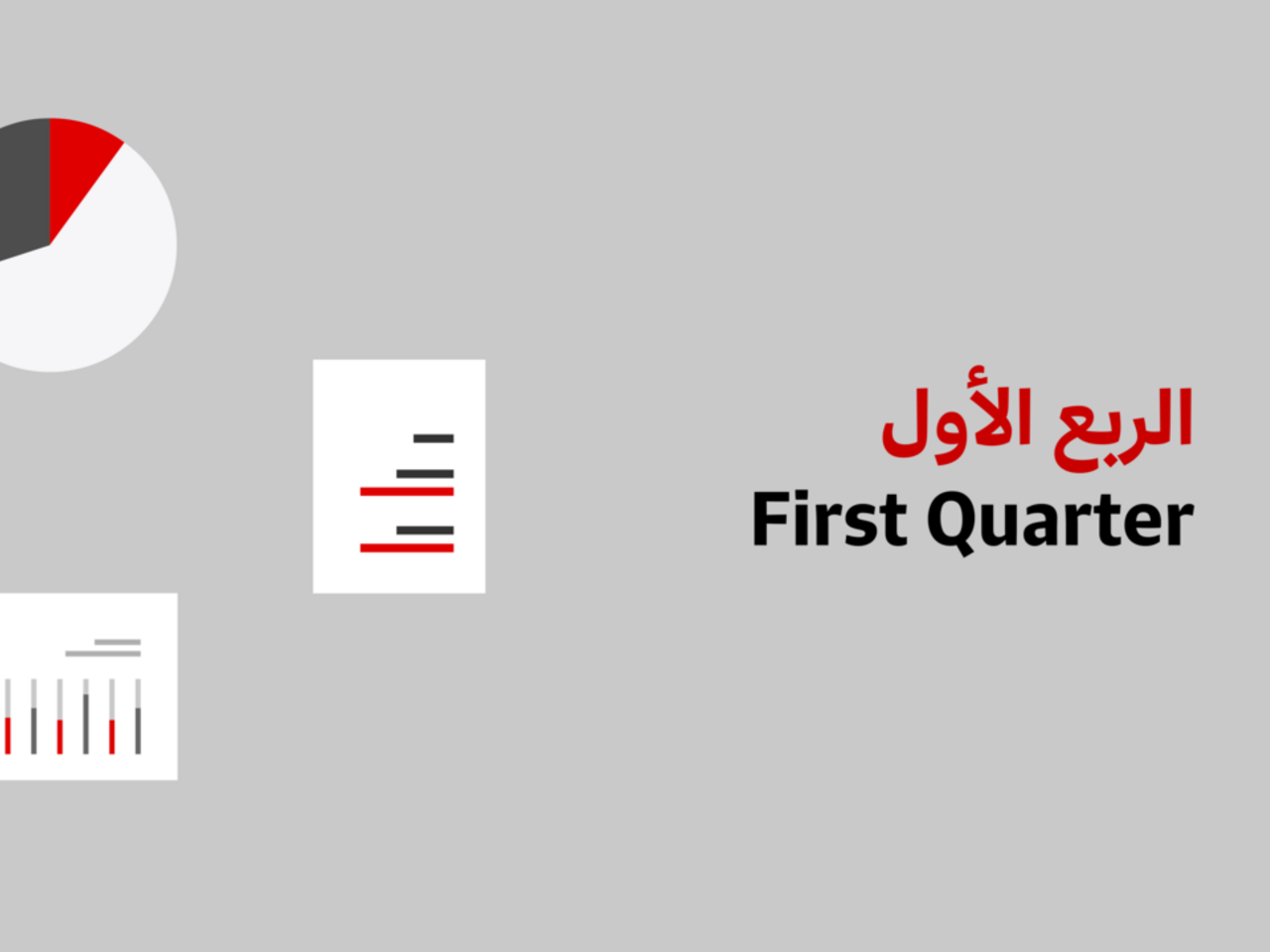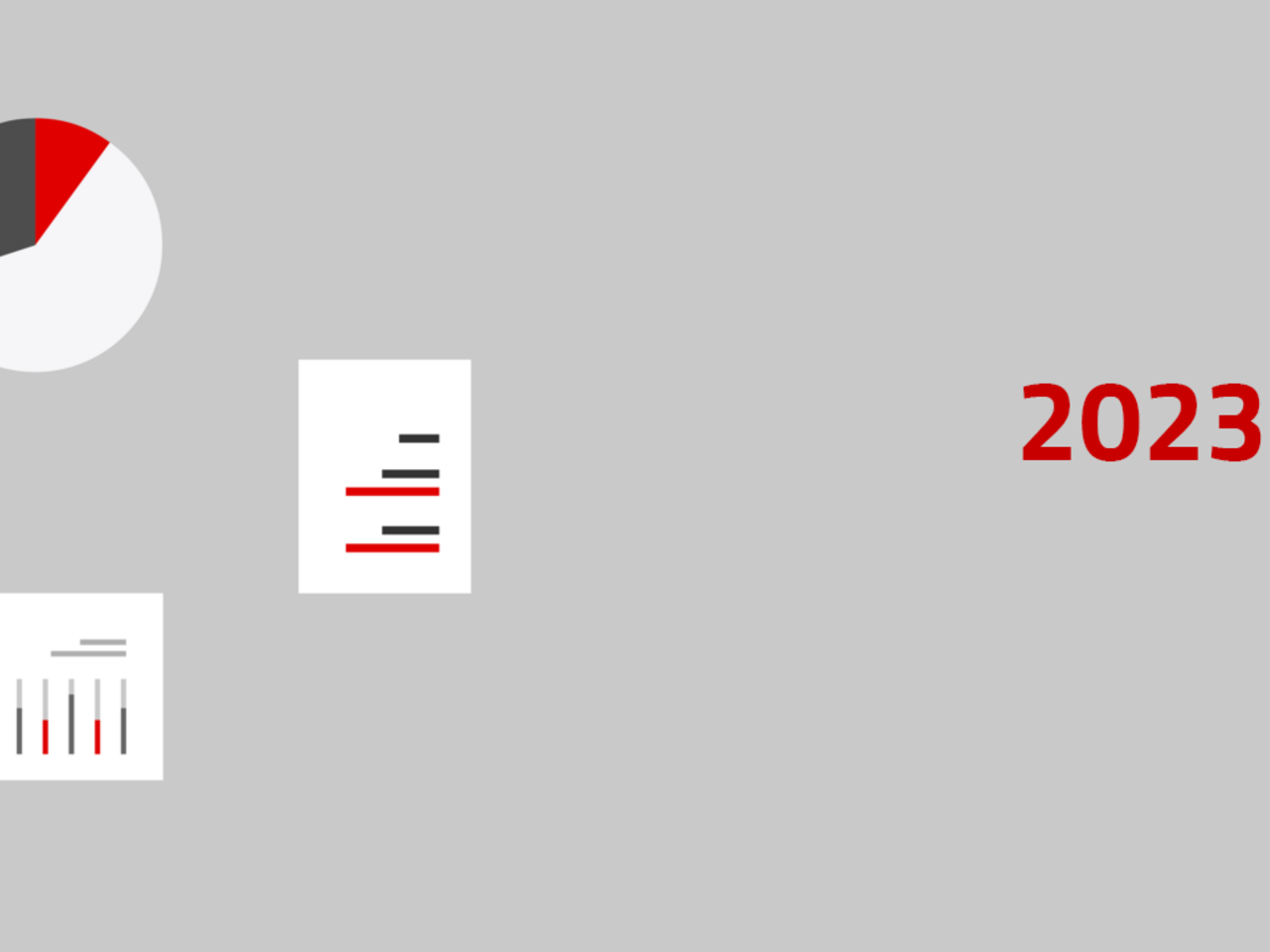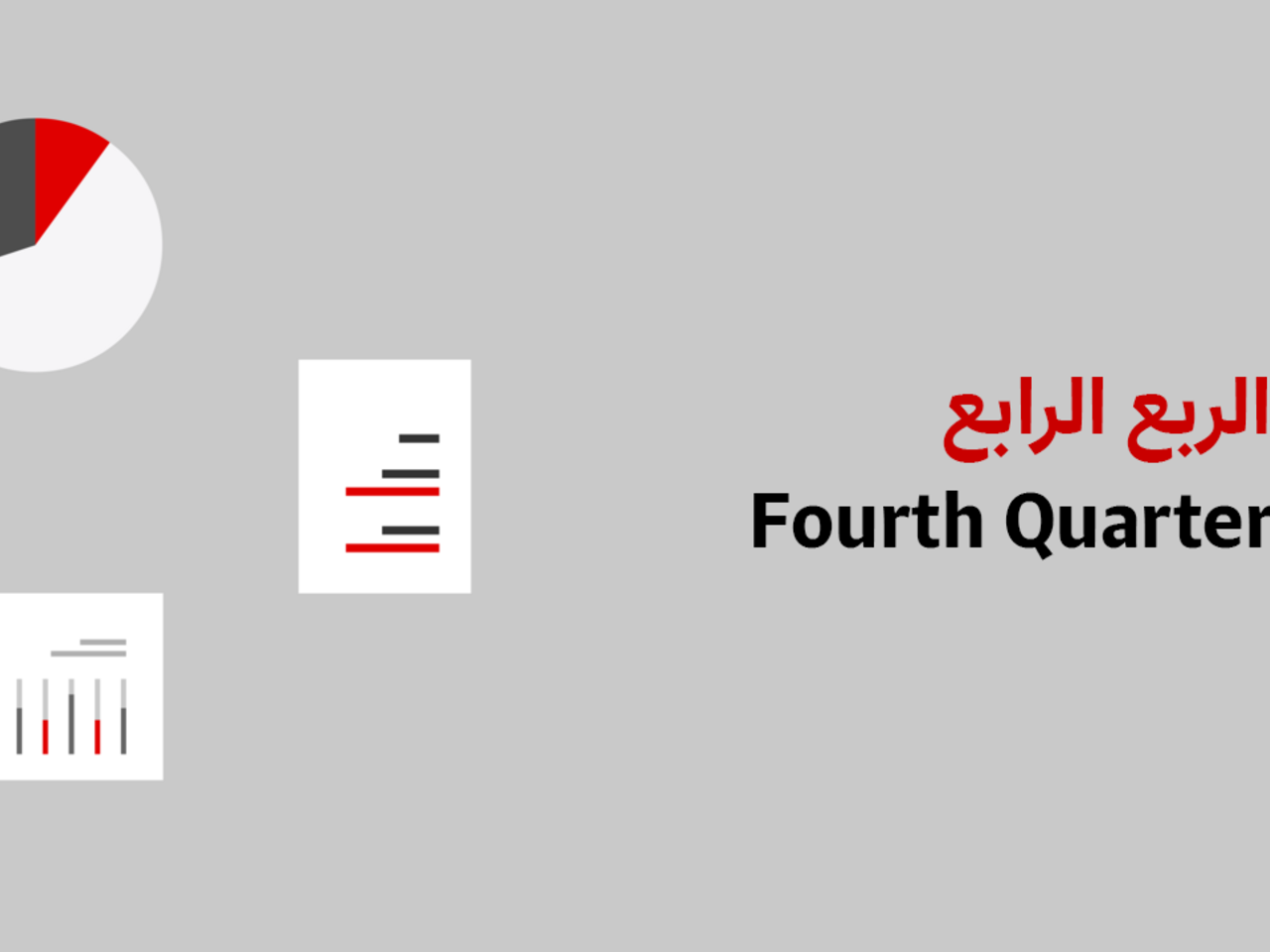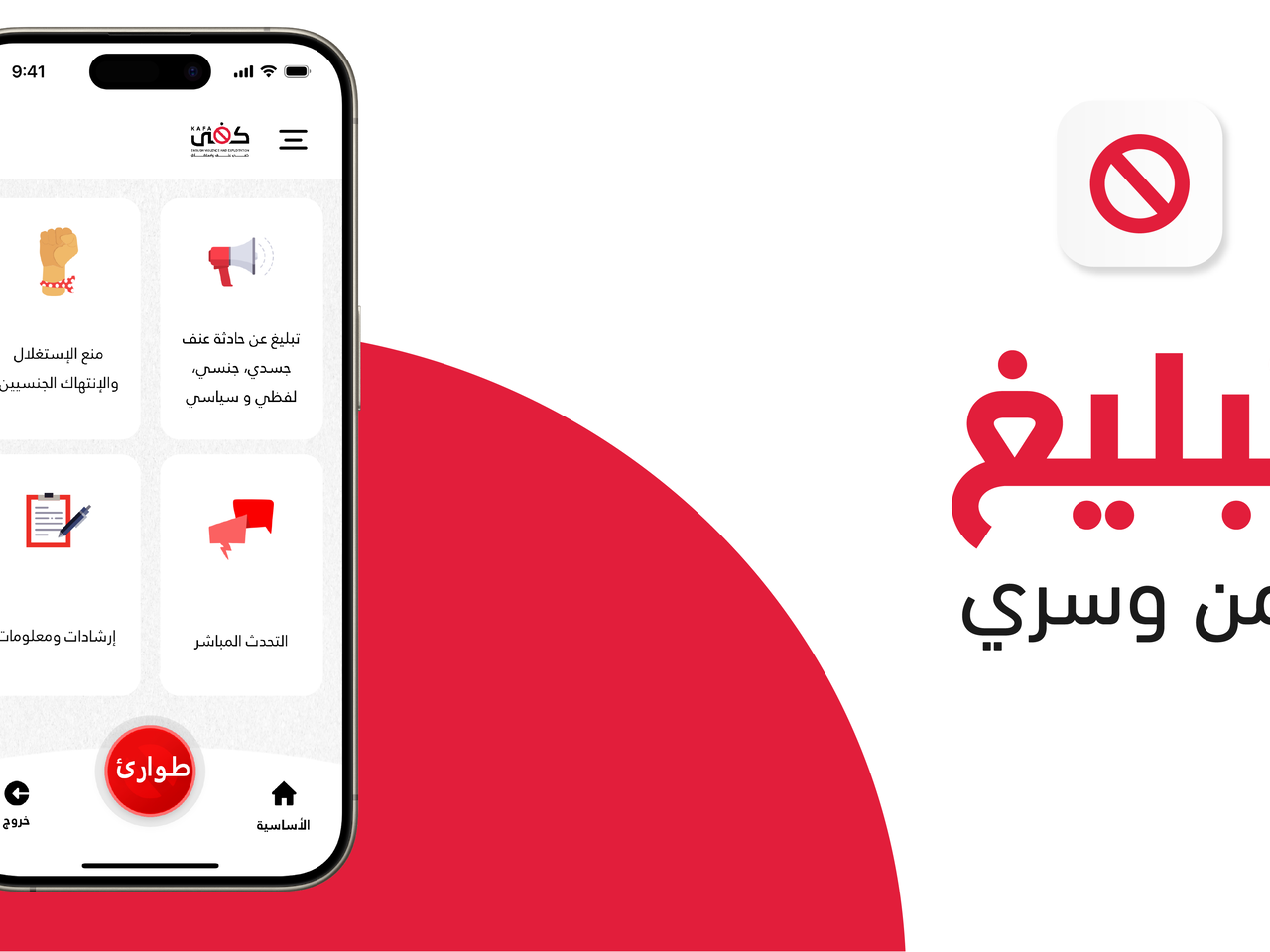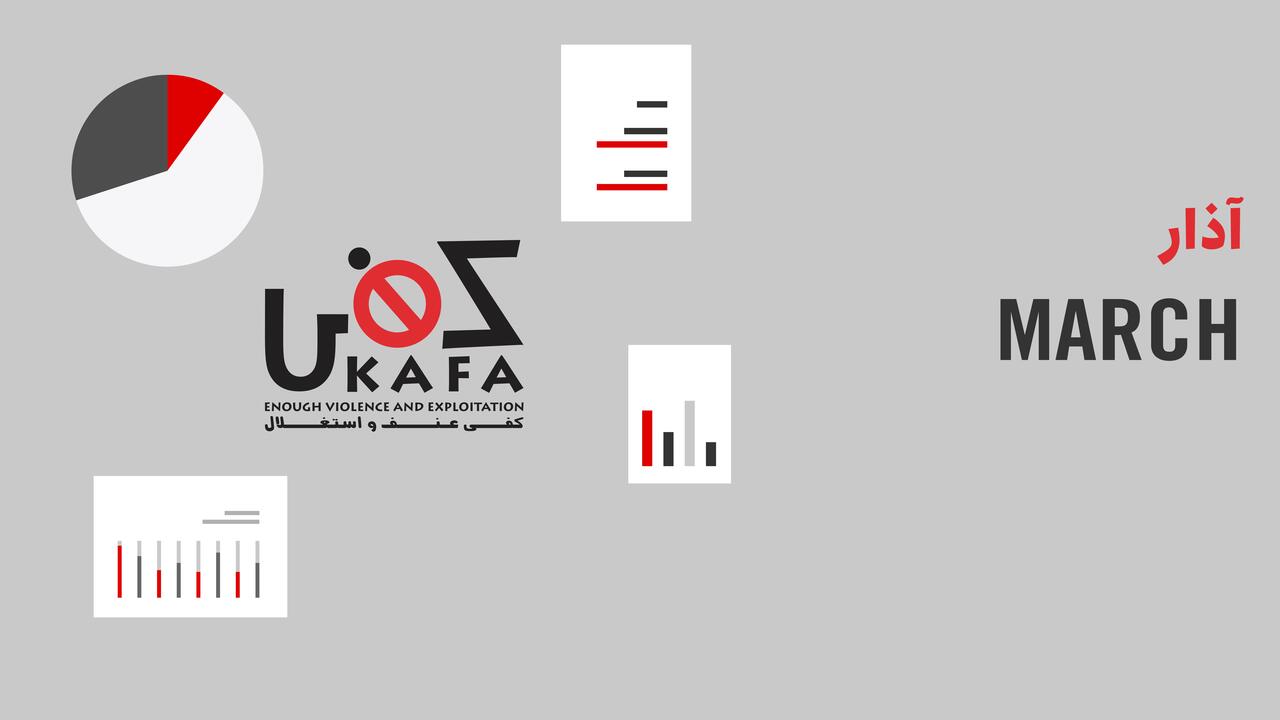
The Jakarta Post
Between the Corona epidemic, and that of domestic violence : Kafa’s March report.
A few days ago, Amal (nickname) was physically abused by her husband. She left the house and went to her parents’ house but was unable to take her two children with her. She walked for hours to reach her parents’ house since she couldn't find anybody to drive her there. No car would stop to pick her up, for fear of catching the coronavirus. The next day, at the police station, her husband pledged not to hit her again. She came back home, but it wasn’t the first time her husband had promised to refrain and later broke his promise.
Amal found a house to shelter her, however, many other victims of abuse don’t have anywhere to go due to the current situation. One woman used to find refuge at her sister’s house, in times of need, but this time, her sister could not receive her, for fear of catching the Coronavirus. Furthermore, the shelters that usually host women victims of violence are not receiving new cases, according to Kafa’s sources, for the same reason.
Salma (nick name\\) is stuck at home with her abusive father. In the past, she used to go to work « to change her mindset and breathe a little », as she puts it. However, since the beginning of confinement, she « hasn't been able to breathe ».
Ever since the expansion of the coronavirus and the start of confinement, there has been a growing fear worldwide for the women and children stuck with one or many abusers. Indeed, the house is considered as one of the most dangerous places for women victims of violence since most of the crimes against women are committed by a partner or a member of the family, according to a UN report. This can only be exacerbated by the fact that going out is no longer an option and by the economic crisis further deteriorated by the current sanitary situation. All these factors can fuel pressure and tensions and can trigger an increase in the cases of violence against the most vulnerable categories.
Some figures and their implications
Kafa’s two support centers, in Beirut and in Beqaa, provide social, psychological and legal services for women asking for help. The centers then closely monitor the situation of these women and their children. As for the support line, it receives reporting around the clock.
Since the beginning of March, Kafa pursued its services to help women over the phone and the support line continued to receive calls and reports around the clock. During the first month of the lockdown, Kafa received 75 calls from women who are getting in touch with the association for the first time. This figure does not exceed the number of calls received during the same month last year. 55 women contacted Kafa for follow up on social services.
The Support Center at Kafa considers that the number of calls does not necessarily reflect the real situation of women during confinement. It is indeed very hard to call and ask for help when the abuser is in the house, especially in smaller houses. Fear also plays a very important role.
During March, we have noticed an increase in text messages and messages on social media, particularly on Facebook. It seems like women feel safer and more comfortable with written communication during confinement. Therefore, during the coming period, Kafa will work on further activating this vector of communication.
It also must be noted that incoming calls to the Beqaa support center from Syrian refugee women have dropped starting March 13. Indeed 70% of incoming calls have been from Lebanese women starting this date, versus 55% Lebanese and 45% Syrian before that.
According to Kafa, the drop in calls from Syrian women can be linked to many factors, mainly the confinement rules forcing people to stay in their houses or tents, and the stricter confinement rules applied to the Syrian refugee camps in Beqaa. People are no longer allowed to leave the camp, not even to buy groceries or withdraw money. Besides, services provided by organizations to families became quasi nonexistent.
In light of this situation, it is particularly hard to report cases of violence and it is impossible to leave the camp to file a complaint. The fear and hesitation that have prevented refugee women from filing complaints in the past, mainly for not having a residency permit, are now stronger than before. The priority today is to find food and a roof.
Content of communications
The content of communications received by the two Kafa Support Centers (Beirut and Bekaa) revolved around the following points:
- Legal advice related to beating and abuse cases, seeing children, custody arrangements and alimony issues.
- Complaints related to the economic situation and requesting in-kind and food aid.
- Questions about a shelter in which to seek refuge.
- Reports from women subjected to violence.
- Communications from mothers to report that their daughters or sons have been beaten by the spouse or divorcee.
- An expression of the pressures they are subjected to and the fear of the coming days.
The impossibility to find a shelter for women who have called for help or to provide a housing alternative for them, as existing shelters no longer receive new women because of the coronavirus, as previously mentioned. Consequently they are forced to stay at home and keep silent about the abuse.
That is why Kafa is working on providing alternatives for women in case the crisis is bound to last.
Furthermore, the closing of Courts and deferral of hearings regarding custody, alimony or divorce is exacerbating the anxiety of women. In this context, Kafa provides psychological support to these women through phone calls to help them overcome this difficult phase.
Kafa has also noted that the nature of incoming communications is different from what it was. Indeed, before confinement, most of incoming calls, excluding urgent cases, were from women trapped in the violence cycle, having suffered from it for a long time. At present, women call to seek help and be informed about available solutions and means to face their situation or deal with the children.
During March, most of incoming calls were from women calling Kafa for the first time as soon as they were subjected to violence. In almost half of the cases, violence has emerged during the confinement period and comes in two forms: physical and moral.
Some women have filed complaints against their abuser, while some backed down, as if fear and hesitation took over once again in these exceptional circumstances.
The cycle of violence
According to Kafa’s figures, the cycle of violence has expanded during confinement to include not only the husband but also the father, the brother and the uncle.
Follow up by Security forces
The ISF have reported that their hotline (1745) dedicated to domestic violence complaints has registered a rise of 100% in incoming calls, in comparison with March 2019.
It is worth noting here that the ISF launched this line in cooperation with Kafa and the National Commission for Lebanese Women on November 5th, 2018. It took quite some time for the hotline to become effective and well-known. Therefore, it is natural that the current figures compared to the percentage of calls received in March 2019, only four months after the launch of the new line, are significantly higher. It does not necessarily convey the reality of the situation.
However, regardless of the accuracy of the percentages and figures circulating, the existence of this line facilitated the task of reporting directly to the security forces about exposure to violence. The security forces' follow-up to the incoming reports was also positive and serious. Public prosecutions dealt with the new situation with flexibility and made it easier to provide proof.
For example, when a woman came to the police station with traces of beating apparent on her body, the prosecutor contacted a medical examiner to proceed to an auscultation. But when the latter refused to come because of the confinement rule, the prosecutor asked the investigator to describe his observations and document the case of violence.
Challenges
Kafa is concerned that the level of violence will increase in the coming weeks, if the confinement period extends and the economic situation further deteriorates. Therefore, it will seek to find a safe place for women and their children and to activate a safe and reliable method of communication during this period. It will also continue to follow up with the security forces, and will remain available, 24/7, for any contact in order to provide help when needed.
During these difficult times, we need to stand by the most vulnerable groups in our society. Staying at home and abiding by confinement must not mean human distancing from one another. On the contrary it must incite us to communicate with our surroundings to ensure safety for all, from disease and violence.
Therefore, we also ask neighbors and acquaintances to report any case of violence they might witness to the Kafa hotline or to the ISF hotline dedicated to domestic violence.
We will continue to issue monthly reports to monitor the situation of women and their children and monitor the level of violence in the most objective and accurate manner.
Translated from Arabic by Work with Words

